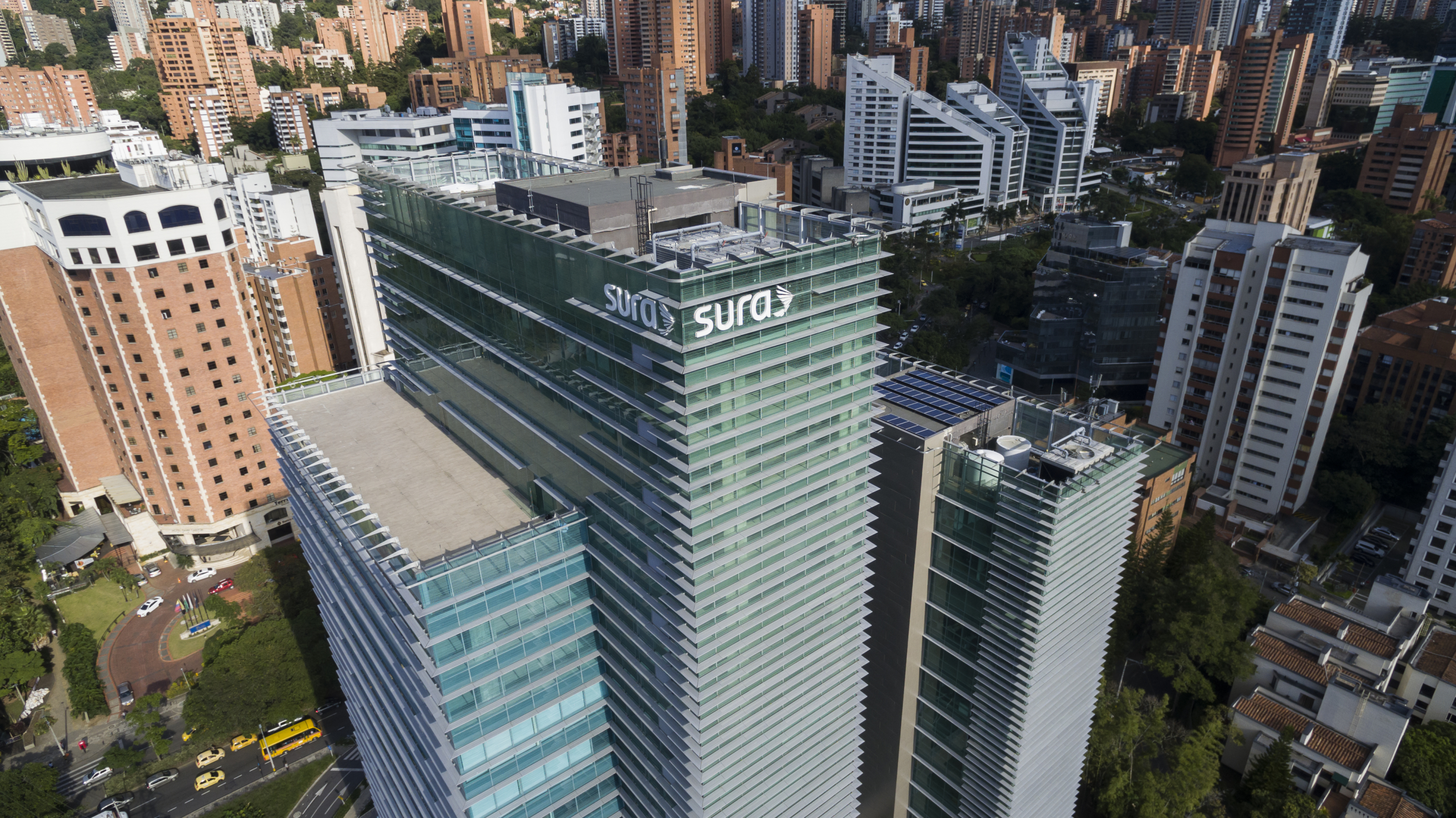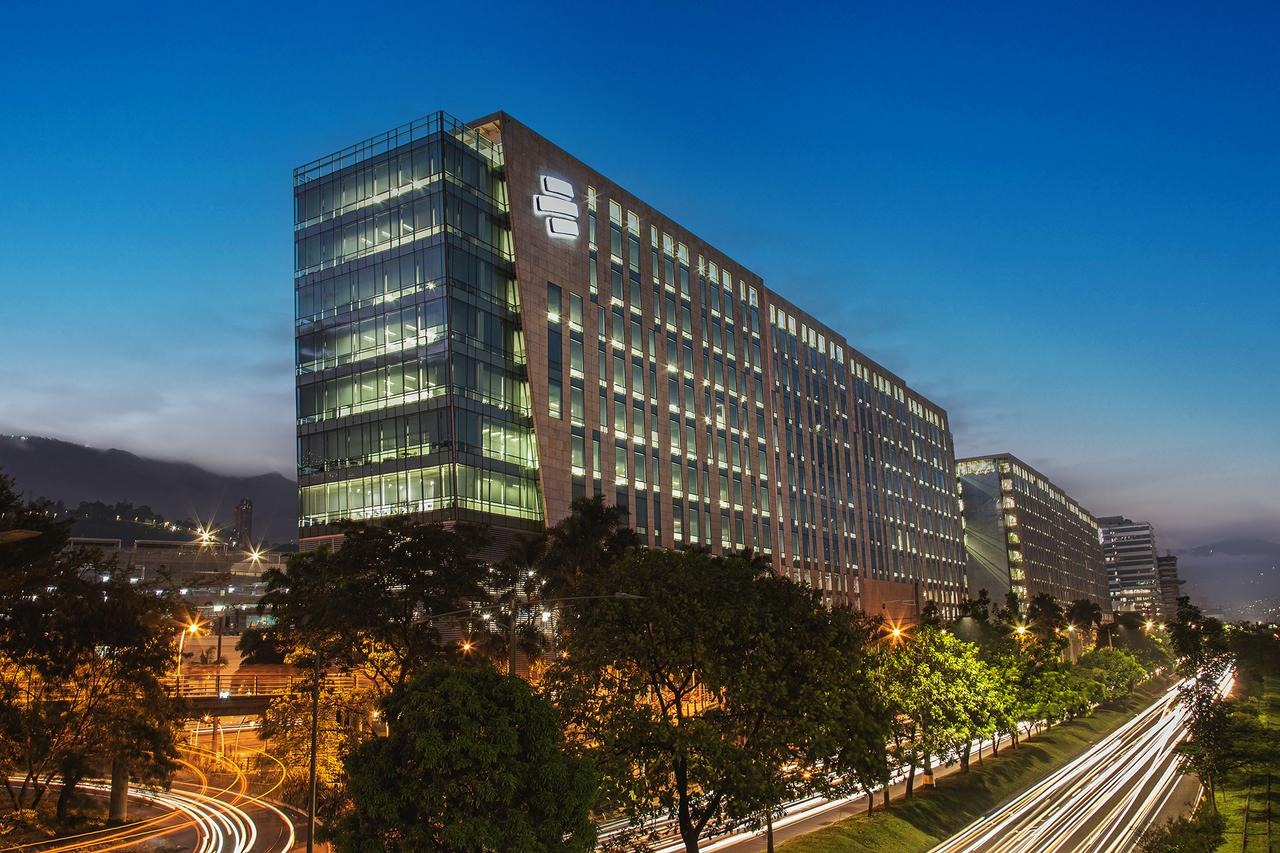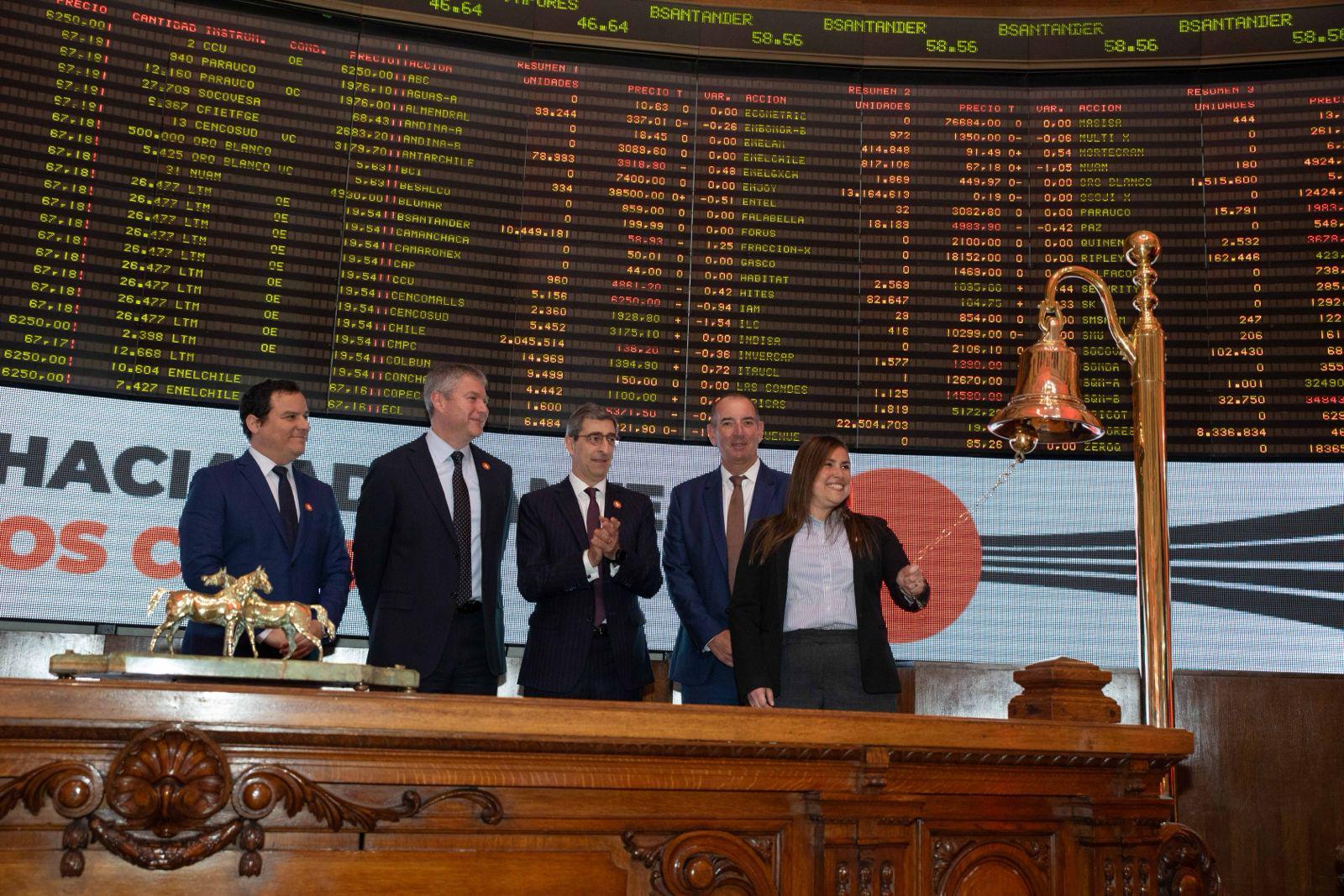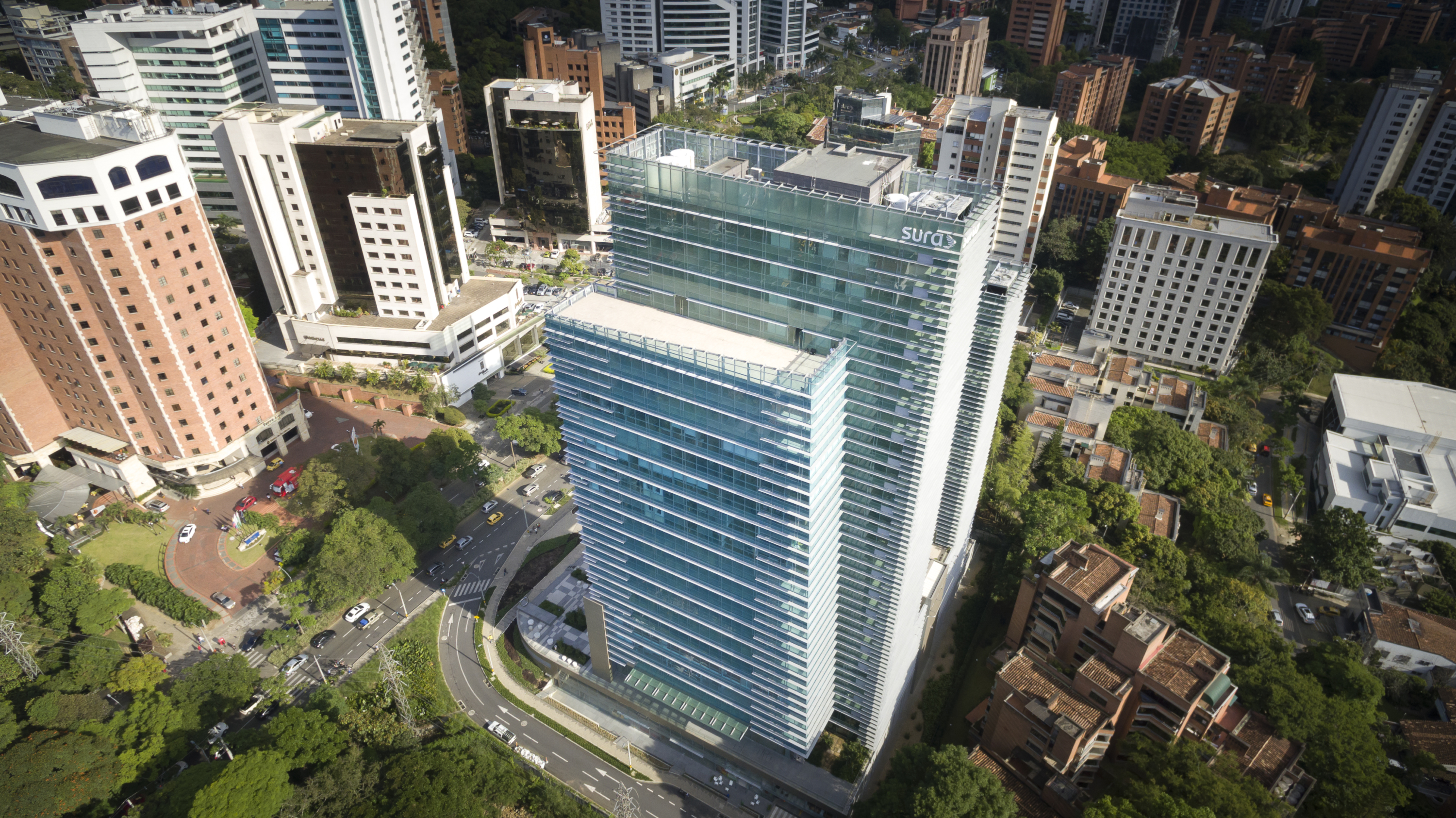After the end of the so-called Antioqueño Business Group, what's next for Grupo Sura alone: interview with Ricardo Jaramillo, its president

Ricardo Jaramillo, president of Grupo Sura, began his career in the Sura group 30 years ago. He started as a financial planning analyst at Fiduciaria Bancolombia, his starting point, and over the past three decades has held other important positions, perhaps never imagining that the day would come when each of those large groups—Sura, Argos, and Nutresa—would embark on a new phase along separate paths, with him leading the final phase of that separation.
Any nostalgia for a business model that lasted 46 years and is ending today? Yes, the executive told ELTIEMPO, for whom the scheme was what allowed this group of companies to cease being local players and become regional protagonists. "There's a lot of nostalgia, but I think this evolution is also logical, and we're very grateful to the people who, over these 46 years, have helped build what these companies have been and what they are."
Jaramillo told this publishing house about Grupo Sura's new plans and objectives, including seeking new opportunities for growth in the 10 countries where they currently operate and, of course, the possibility of expanding into other countries. They also plan to continue expanding their shareholder base, as well as the possibility of finding new strategic partners and becoming listed on the New York Stock Exchange.
Does the end of the shareholding castling between Sura, Argos, and Nutresa after nearly five decades leave some nostalgia? Yes, it's been 46 years of cross-ownership, with clear objectives at the outset that evolved, allowing each of these companies to focus and build regional expansion. This model was what allowed these companies to move from being local players to regional players. Today, we are present in 10 countries, with 76 million customers, operations throughout the region, and with a brand that was born in Medellín 80 years ago. So, there's certainly a lot of nostalgia for the evolutionary process, so I think it's natural and logical to thank those 28,000 employees for their work over these decades and their commitment to this new stage, in which we will continue to build a better future for all, building on the positives of the past.
What does it mean to be at this point in the process? From the moment we began working on the transaction design, we had clear premises that it would be a transaction that would generate value for all shareholders, be equitable, and efficient. We are seeing the materialization of those objectives, and so are the shareholders, because the market has received it very well with the performance of Sura and Argos shares. It's a virtuous cycle for shareholders, for the companies, and good for the capital markets.

Sura Group Photo: Sura Group
We were in luck because it went much faster than we thought. We estimated we'd complete the transaction by the end of this year; the Assembly approved it in March, and from then on, we worked on the entire documentation process for the Financial Superintendency, with whom the conversation flowed very well, in part because it was a very successful proposal for all stakeholders. The Superintendency approved us, and we entered into execution mode, which lasted about three weeks. On Saturday at 3:30 a.m., we finalized everything related to the uncrossing process. On Monday, the two companies, Sura and Argos, officially began trading on the Colombian Stock Exchange, uncrossed.
Given that this was a win-win operation, why wasn't it done sooner? It's a very valid question. I think everything in life has its moments, and we had that vision of international markets with companies specialized in their sector. Thirty years ago, these companies had much more complex cross-ownership. Before our national expansion, we had a financial services portfolio that weighed less than 50 percent, and our entire expansion was in that area. What was missing, as you mention, was the process of decross-ownership, which incorporates many positive attributes left by the cross-ownership of companies that are leaders in their industries. These attributes had to be incorporated into the DNA of the organization, so that people understand how to conduct business with a long-term vision, focused on people, and with a focus on public, economic, and social value. One can always wonder why it wasn't done before, but the important thing is that it was done in a way that we believe is very fair and equitable for all shareholders.
Sura will continue to focus on financial services. What challenges and opportunities do you see there? We have three main investments in this sector: the insurance business with Suramericana, the fourth-largest company of Latin American origin, with nearly 20 trillion pesos in premiums; Sura Asset Management, a leader in pension fund management with nearly 750 trillion pesos in assets under management; and Cibest, the parent company of Bancolombia, with which we also have a significant stake, with nearly 365 trillion pesos in assets. On these three fronts, we see numerous opportunities to continue growing organically, as the penetration of financial services in Colombia and the region remains very low. That's why we're investing in technology, new channels, solutions, and products throughout the region, exploring strengthening options in those 10 countries, as well as inorganic opportunities through alliances, acquisitions, and ecosystem development. In the last 10 years, this company grew from around 8 or 9 trillion pesos in revenue, and this year we expect to close with around 30 trillion. This organic growth is the driving force we'll continue to pursue.

Bancolombia headquarters in Medellín (Antioquia) Photo: Bancolombia
The investment in technology amounts to 2 billion pesos and includes both recurring investments and new projects across all of the group's companies.
They're thinking about a specific country where they see potential for further growth, or one they're not currently in and would like to enter... We have a footprint in which not all verticals are present in the 10 countries where we operate, so today it's more about how we strengthen that footprint. In some of those countries, we're looking to gain scale in certain verticals. Now, when we look long-term, 5 to 10 years, we definitely have to start looking at other geographies because it's part of our responsibility to plan this company for the future and start looking at other regions and other businesses where we can bring this successful recipe. It's an open possibility, as are alliances or partner possibilities. It's important to keep in mind that around 85 percent of the capital invested is in Latin America, focused on what used to be the Pacific Alliance (Mexico, Colombia, Peru, and Chile).
What have shareholders gained from this transaction? This transaction leaves us with approximately 41,000 shareholders, a fairly fragmented base, with around 220 international funds, pension funds, foundations, legal entities, local institutional funds, and individuals who are now directly receiving the appreciation of both types of shares, common and preferred. For practical purposes, someone who held one million pesos in Grupo Sura common shares in October now holds 1.76 million pesos and nearly 2.1 million pesos in preferred shares, not including the value generated by Grupo Argos.
And that shareholder base will expand... Our task and priority is to win over more shareholders every day. We have a responsibility to develop the capital market, and I hope we can further democratize ownership of this company every day. I think this is a great time to spread this hope and positivity to new shareholders.

Nuam executives during the launch of one of the market's new indicators. Photo: Colombian Stock Exchange
We are a relevant player in the capital markets of these geographies, and from our position and role, we have always wanted to promote the integration of these markets. Unfortunately, it must be said, this has happened at a speed that is not what we would have liked and is difficult from a political and fiscal perspective. But today, adding the markets, as we are discussing, is very attractive because it creates greater depth. So we are ready to work with the Stock Exchange, with Nuam, to see how we can materialize this integration.
How is the search for a new partner going? One of the tools companies have is to seek partners and alliances. We are always open to them to help us boost our business in terms of growth and knowledge; where we share a way of doing business and have a common vision of how we envision this company in the future. Two very good examples of this are the alliance we have with Munich Re and the Canadian fund CDPQ (Caisse de Depont et Placement du Québec). We are clearly seeking these types of partnerships for the future, in different businesses and different geographies.
What is the group's debt level? We have a debt resulting from the international expansion process, the acquisition of Grupo Bolívar's stake in Sura Asset Management and the recent takeover bid for the share exchange agreement between Grupo Nutresa and Grupo Sura. This debt currently amounts to close to 7 billion pesos.

Sura Group Photo: Sura Group
Clearly, we're in a time of considerable volatility and political uncertainty, not only in Colombia and the region, but we have to build the capacity to continue developing our businesses in the face of this uncertainty. This is an 80-year-old company that doesn't plan its future four years in the future, but rather for the much longer term. Short-term circumstances can have some impact on the numbers, particularly regarding the debt issue you mentioned. The fact that interest rates and inflation have been declining today helps us in terms of debt service, and we're carefully monitoring this issue to maintain a financial health that allows us to maintain positive indicators.
Finally, when will we see him again at the New York Stock Exchange bell, but celebrating the arrival of Grupo Sura? I had the privilege of being there a few days ago with Cibest. I was just telling you that I joined Bancolombia in 1995, and it was exactly the same three decades that the bank was listed on the New York Stock Exchange. Grupo Sura, as I was saying, always has the option of listing on other markets, but in the short term we don't have an initiative in that direction. However, we have been preparing companies to play in that league, and eventually, having the option of listing on another exchange is something we believe is valuable for the market and for our shareholders.
eltiempo





